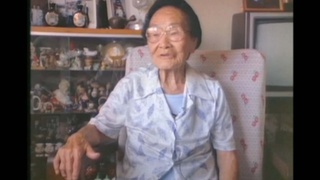Interviews
Delivering know-how to the next generation (Japanese)
(Japanese) You know, well, the reason why I started the school isn’t about profit; not about how much I made in the past 50 years, or how much freedom I have now, or any of that. It’s because there has got to be some kind of know-how [that must be passed down]. And I’m getting old now, so I felt I had to do it sometime soon. When I’m a goner, when I’m buried six feet under, no one can use this know-how anymore. So before I go under, I want to pass on this know-how to as many young people as I can. This is my wish. From here on out, we’ve already handed things over to our children—it’s the children who have to do something with it, now. But I’m hoping to keep doing research in a new direction, so that we won’t be using these older machines. This time, I’m hoping it leads to the creation of some new, advanced machines.
Date:
Location: Brazil
Contributed by: Caminho da memória - 遥かなるみちのり. São Paulo, Brazil: Comissão de Elaboração da História dos 80 Anos de Imigração Japonesa no Brasil, 1998. VHS.







